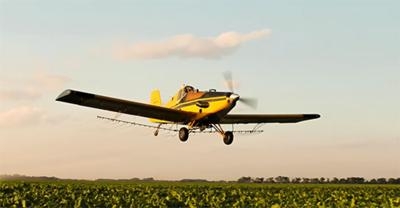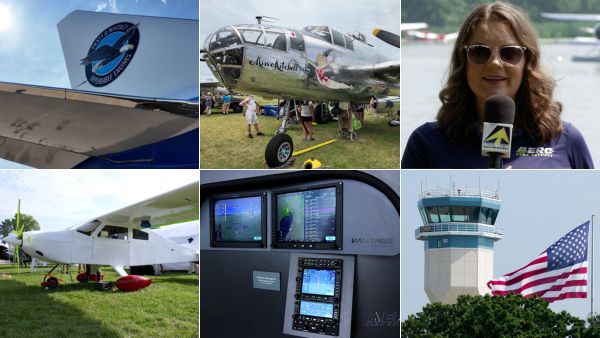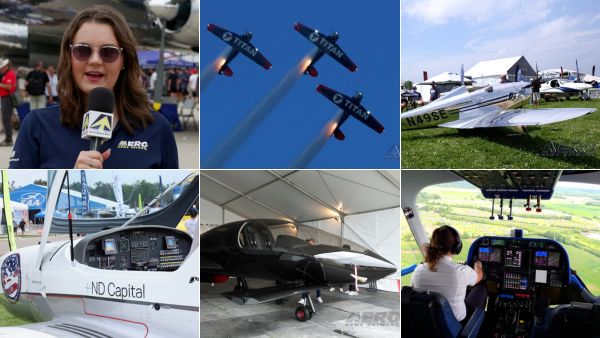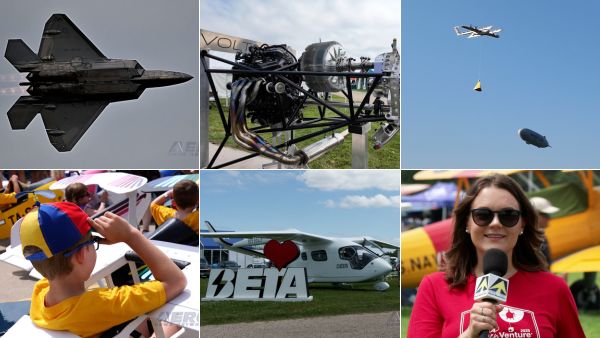Sun, Apr 13, 2025
Recommends Measures To Improve Safety For Aerial Applicators
In preparation for the upcoming agricultural growing season in the U.S., the National Agricultural Aviation Association (NAAA) is urging all operators of uncrewed aerial systems (UAS or drones) to be aware of low-altitude manned aircraft operations. The group has issued a set of recommendations for drone operators to do everything possible to avoid manned aircraft conducting low-altitude operations.

Every year, agricultural aviators apply seed, fertilizer, and crop protection measures to nearly 130 million acres of cropland in the U.S., in addition to millions of acres of pastureland, rangeland, and forests to assist farmers increase their productivity and protect their crops. Almost all of those operations involve low-altitude flight at speeds of up to 140 mph.
NAAA recommends drone operators follow these guidelines:
- Give the right of way to a manned aircraft: It’s the law.
- When you return to a field to fly a UAS, ensure that there are no manned aircraft working in the field. Fields should be scouted each time your pilot returns to the field, not only at the beginning of the application.
- Equip drones with visible strobe lights, highly visible markings and tracking technology, like an ADS-B In system.
- Monitor aviation radio frequency 122.925 MHz for crewed agricultural aircraft. To transmit, consider a radio station license by submitting FCC Form 605.
- Be certified and well-trained in operating an uncrewed aircraft.
- Contact local agricultural aviation operations before flying by consulting the Find An Aerial Applicator database at AgAviation.org.
- Land your uncrewed aircraft immediately when a low-flying aircraft is nearby.
- Carry uncrewed aircraft liability insurance.

Andrew Moore, chief executive officer of NAAA said, “With the increasing number of uncrewed aircraft operations over the last few years, their operators must be aware of low-flying, manned agricultural aircraft. It is extremely difficult, if not impossible, for manned aircraft to see a drone while conducting aerial applications 10 feet off the ground at speeds of up to 140 mph.
“UAS are not allowed above 400 feet without a waiver from the Federal Aviation Administration (FAA), meaning they share the low-altitude airspace with ag aircraft. We encourage professional and hobbyist UAS operators to keep this in mind, equip UAS with detect and avoid technology and give right-of-way to manned or crewed ag aircraft to ensure a safe 2025 growing season.”
More News
Also: New Lakeland Fly-in!, Gleim's DPE, MOSAIC! Nearly three-quarters of a century in the making, EAA is excited about the future… especially with the potential of a MOSAIC>[...]
Estimated (EST) -When used in NOTAMs “EST” is a contraction that is used by the issuing authority only when the condition is expected to return to service prior to the >[...]
Aero Linx: Regional Airline Association (RAA) Regional airlines provide critical links connecting communities throughout North America to the national and international air transpo>[...]
The Airplane Broke Up In Flight And Descended To The Ground. The Debris Path Extended For About 1,435 Ft. Analysis: The pilot, who was the owner and builder of the experimental, am>[...]
From 2015 (YouTube version): History Comes Alive Thanks to A Magnificent CAF Effort The story of the Douglas C-47 named, “That’s all Brother,” is fascinating from>[...]
 Airborne 07.21.25: Nighthawk!, Hartzell Expands, Deltahawk 350HP!
Airborne 07.21.25: Nighthawk!, Hartzell Expands, Deltahawk 350HP! ANN's Daily Aero-Term (07.27.25): Estimated (EST)
ANN's Daily Aero-Term (07.27.25): Estimated (EST) ANN's Daily Aero-Linx (07.27.25)
ANN's Daily Aero-Linx (07.27.25) NTSB Final Report: Luce Buttercup
NTSB Final Report: Luce Buttercup Classic Aero-TV: 'That's All Brother'-Restoring a True Piece of Military History
Classic Aero-TV: 'That's All Brother'-Restoring a True Piece of Military History



